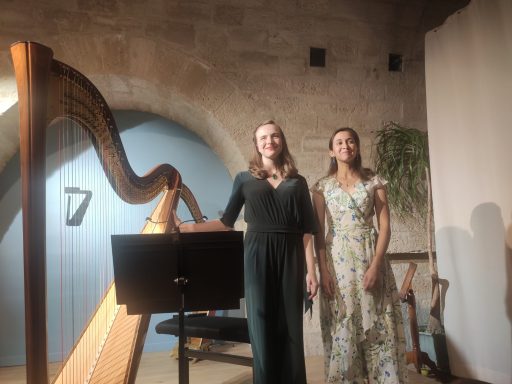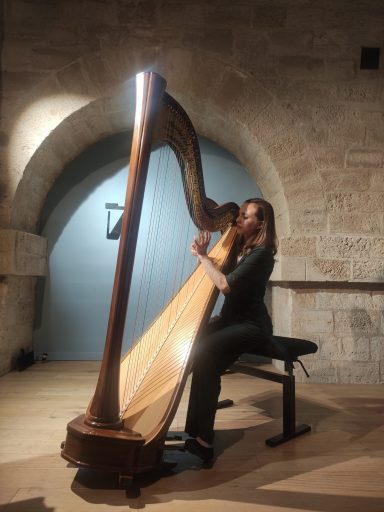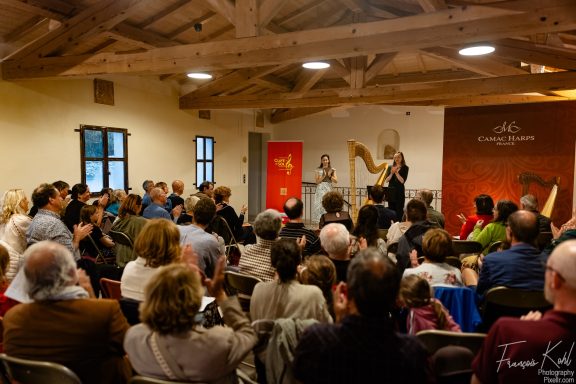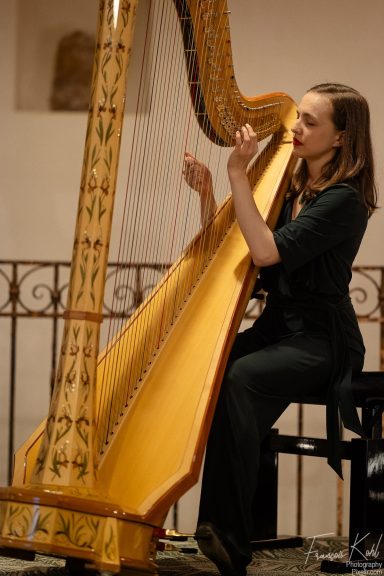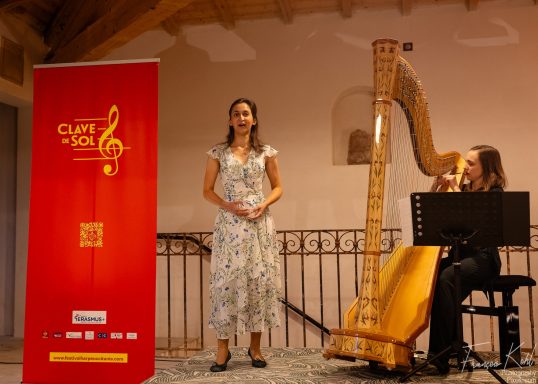Bach - Chaconne
In a letter to Clara Schumann, Johannes Brahms wrote, « If I imagined that I could have created, even conceived the piece, I am quite certain that the excess of excitement and earth-shattering experience would have driven me out of my mind. » Having lived with and studied this piece for many years, I can only echo the extraordinary depth of feeling that the Ciaconna of Bach evoked in Brahms. It contains a whole world of emotion, meaning and rhetoric in just 15 minutes, and its impact on audiences and musicians alike has been almost beyond compare in the musical literature.
The Ciaconna has accompanied me at every stage in my musical journey; as a child in wonderment, as I heard it for the first time; as a teenager in a music theory class, awestruck as I began to grasp the profound logic behind its form; and finally, as a mature artist, studying and performing the work as a harp transcription. In this programme I wish to present the Ciaconna in relief with several other works, also based on the same ancient form of dance and variation. In so doing, I hope to give the audience a glimpse into the universality of Bach’s music, and also the very personal effect it has made on me and my musical journey.
Trobar - français
Le mot trobar, en langue d’oc, vient, comme son homologue français trouver, du latin tropare, qui signifie « composer » ou « inventer un air ». Ainsi, les troubadours et trobairitz du XIIe siècle étaient des artistes qui « trouvaient » les mots et les phrases musicales pour transmettre différentes émotions à travers leur musique.
Ces ancêtres de nos compositeurs classiques nous ont laissé de belles pages de musique, que nous contrastons dans ce programme avec des pièces de compositeurs du tournant du XXe siècle. Le public retrouvera ainsi des œuvres favorites, telles que Après un rêve… de Fauré ou encore le Clair de Lune de Debussy, mêlées à des oeuvres de Chaminade et Boulanger qui méritent d’être mieux connues. La musique des troubadours et des modernistes français encadre la période dite classique de l’histoire de la musique. Malgré les huit siècles qui les séparent, ces compositeurs se ressemblent par leurs inspirations musicales et textuelles. Trobar est une invitation au voyage qui, en une heure, transportera l’auditeur du début du dernier millénaire à sa fin…
Chez Harposphère à Paris, le 17 septembre 2024. "[Héloïse] a des qualités musicales indiscutables et elle ne faisait pas ici qu’accompagner Mimi, le chant de sa harpe, et quel chant, en faisait un véritable duo magique. [...] C’était une soirée à Harposphère où ces deux femmes étaient bien des trobairitz du XXIème siècle !" (Stéphane Loison, Vieille Carne)
Trobar - English
The word trobar, in the Occitan language, comes from the Latin tropare, which means “to compose” or “to invent a tune.” The French word “trouver” shares this Latin root, but means “to find.” With this etymology in mind, the troubadours and trobairitz of the 12th century were artists who “found” the words and musical phrases to convey different emotions through their music.
These ancestors to our classical composers wrote beautiful works, which are interwoven in this programme with pieces by composers from the turn of the 20th century. The audience will recognise favourite works, such as Après un rêve… by Fauré or Clair de Lune by Debussy, as well as discover works by Chaminade and Boulanger, which deserve to be better known. The music of the French troubadours and modernists stand at either end of the so-called “classical” period in music history. Despite being separated by eight centuries, these composers share musical and textual inspirations. Trobar is an invitation to a musical journey which, in an hour, will transport the listener from the beginning of the last millennium to its end...
Clôture du Festival International de Harpe d'Occitanie, le 22 septembre 2024, au Domaine de Rieussec à Gignac.
Contact form

© Droits d'auteur. Tous droits réservés.
Photos : Benoit Pitre, François Kohl, Andrew Bogard
Nous avons besoin de votre consentement pour charger les traductions
Nous utilisons un service tiers pour traduire le contenu du site web qui peut collecter des données sur votre activité. Veuillez consulter les détails dans la politique de confidentialité et accepter le service pour voir les traductions.
